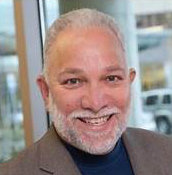What to expect when you are retiring?
A reflection on how people respond to pregnancy and retirement
PROVIDENCE – After 35 years as an obstetrician gynecologist serving thousands of women, it is now, after I have retired, that I understand what my pregnant patients go through every day.
Pregnancy and retirement are very similar. Obviously, bringing a life into the world is a magical event that forever changes those who are touched by its grace, and a mundane activity like retirement does not have the same transcendence.
However, it is the behavior of those around us, pregnant women and recent retirees, where the similarities lie. It is almost as if this newfound condition gives everyone permission to assume, intrude and sometimes judge the decisions we have made.
Here are some examples.
• The first thing people do is to congratulate you for your new condition. While this is perfectly appropriate in that most people are happy for you, it fails to recognize how either condition may or may not be voluntary. What if I was fired or if my job became unbearable? What if she did not want to be pregnant, or as some of my actual patients have experienced, what if there is something terribly wrong with the pregnancy? Congratulations in these circumstances are painful.
Luckily, I retired by choice, but it still makes me feel funny when I get congratulated, because it feels like I finished a race that I was not supposed to finish, or I was just released from jail. Maybe it would be more appropriate if people would gauge your feelings before celebrating. “How do you feel?” might be a better greeting for the news.
• Another common question is: “So what are you going to do now?” Most do not see the value judgment of that question, but I can tell you that it makes me feel like I would be a total loser, if I don’t have some kind of clever answer like: I am going to go plant trees in the Amazon jungle or something valuable like that.
What if I just want to watch reruns or do crosswords all day? Am I somehow violating the guidelines of the Retiree Code of Conduct?
Maybe an inquiry regarding what the future holds is a softer, more appealing way of asking the same question. Again, even though I have plans to work on a number of personal projects, I feel that the questioner is ready to decide whether it is an appropriate use of my time, especially when they say something like. “Oh, that’s nice,” as they look into the distance, not being sure if it meets the guidelines.
A newly pregnant woman who may or may not be interrupting a career, education or may be involved in a terrible relationship, will have a public and a private answer to the same question, and may struggle with the thought of strangling you with her bare hands.
How many times have you touched the pregnant belly of a stranger or asked someone with a big belly if they are pregnant? I have, and it did not end well. I was in an elevator and the woman was not pregnant.
Hugs are optional
Every time I tell someone I am retired, I get a hug or a pad on the back, as if I had lost or won something. I can tell you that losing the regularity of a schedule is disorienting, and that disorientation is made more acute by the expectations of others.
As you are reading this, are you already judging me and thinking what an ungrateful person I am for not accepting others’ happiness for my condition? Don’t judge me. I am very happy to be retired and I feel great about catching up on some reruns.
All I am trying to impress upon you today is that any time you engage a pregnant woman or a retiree, you need to gauge your own feelings first, and make sure that you are sensitive about all the possibilities facing both.
Many people are very private or may not want to be touched by strangers, or even share their feelings about their newfound condition. My advice: wish both pregnant women and retirees, “Best wishes,” and suggest which reruns should not be missed. Anything else could get you in trouble.
Dr. Pablo Rodriguez, M.D., is the former chair of the Women & Infants Health Care Alliance, former president and CEO at Women’s Care, and former medical director of Planned Parenthood of Rhode Island.






